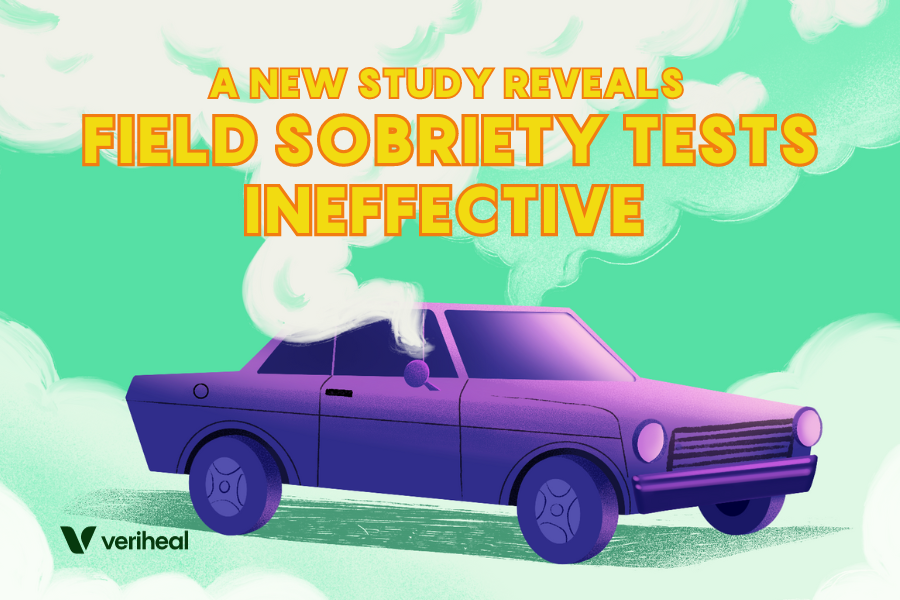As more states move toward legalization, accurately detecting impaired driving is of the utmost importance. Field Sobriety Tests (FSTs) have long been the go-to method for law enforcement to assess driver impairment caused by substances like alcohol. However, a recent 2023 study published in JAMA Psychiatry raises serious questions about the accuracy of these tests when it comes to detecting impairment induced by tetrahydrocannabinol (THC).
Let’s take a closer at the study’s findings and examine the legal ramifications of relying on an outdated evaluation system.
The Importance of Accurate Impairment Testing
The significance of accurate impairment testing cannot be overstated. It is not merely a matter of acknowledging its acceptance but also ensuring responsible use, particularly when it comes to driving.
The inaccuracy of impairment detection not only puts road safety at risk but also exposes innocent drivers to potential legal consequences. Even a small infraction can make someone’s life harder than it has to be — all over a potentially flawed test.
The current reliance on FSTs to assess cannabis-induced impairment in the U.S. poses a challenge. It requires striking a balance between adjusting to societal changes and ensuring public safety.
What Science Shows About the FST-Cannabis Disconnect in Prior Research
Earlier research findings align with these recent insights about the limitations of FSTs. Notably, a 2021 study conducted by Johns Hopkins University raised these concerns. Their research indicated that crucial components of the FST, particularly the ‘walk-and-turn’ test and the one-leg stand, were poorly adapted to the specifics of cannabis-induced impairment.
Simply put, these age-old testing methods, which might have once been reliable for detecting alcohol impairment, cannot be relied upon in the case of THC’s effects on motor skills and coordination.
What The Courts Say About FST Reliability
Legal experts have raised concerns about the reliability of traditional FSTs when it comes to assessing cannabis impairment. One significant case, Commonwealth v. Gerhardt, saw the Massachusetts Supreme Judicial Court make a historic decision in 2017.
The court ruled that law enforcement officers cannot testify in court that a defendant either ‘passed’ or ‘failed’ a specific FST. This decision highlights the limitations of FSTs — challenging the previously unquestioned validity of these tests. As a result, the justice system has had to reevaluate the metrics and evidence used to handle cases of cannabis-impaired driving.
Are There Alternatives to Field Sobriety Tests?
With traditional FSTs’ shortcomings exposed, alternative methods to measure THC impairment are emerging. One such innovative tool is the mobile device performance application DRUID.
Why You Should Get Your Medical Marijuana Card
Veriheal has satisfied millions of patients nationwide by giving them access to these benefits
- Larger purchase limits
- Peace of mind
- Enhanced legal protection
- Access to higher potency strains
- Save up to 25% on cannabis purchases
- Skip the line at the dispensary
Through a series of tasks, DRUID assesses impairment, especially in relation to cannabis, in a more objective and sensitive manner. If all goes well, performance testing technology may help provide a more reliable and detailed picture of cannabis-induced impairment.
Experts’ Take On The Issue
Experts have expressed their opinions on the JAMA Psychiatry study’s groundbreaking findings. According to accompanying editorials, experts were in complete agreement with the study’s conclusions. They emphasized that traditional field sobriety tests, even when carried out by trained police officers, are insufficient for detecting impairment caused by cannabis use.
Researchers concluded that:
“The findings of this study suggest that FSTs are useful adjuncts but do not provide strong objective evidence of THC-specific impairment and additional efforts to validate existing methods and provide law enforcement with new, effective tools for identifying impairment are needed.”
It is incredibly clear where the scientific community stands on this issue.
Impaired Driving and Cannabis: Navigating the Road Ahead
As this article shows, the use of field sobriety tests to detect THC-induced impairment is quickly losing validity. Research suggests that FSTs are not an entirely reliable measure, and there may be more accurate alternatives out there.
Future studies must focus on new, innovative methods of detecting impairment from cannabis. Until then, it’s essential to understand that FSTs are not accurate indicators of THC-induced impairment.
Note: The content on this page is for informational purposes only and is not professional medical advice. Do not attempt to self-diagnose or prescribe treatment based on the information provided. Always consult a physician before making any decision on the treatment of a medical condition.
Author, Share & Comments









